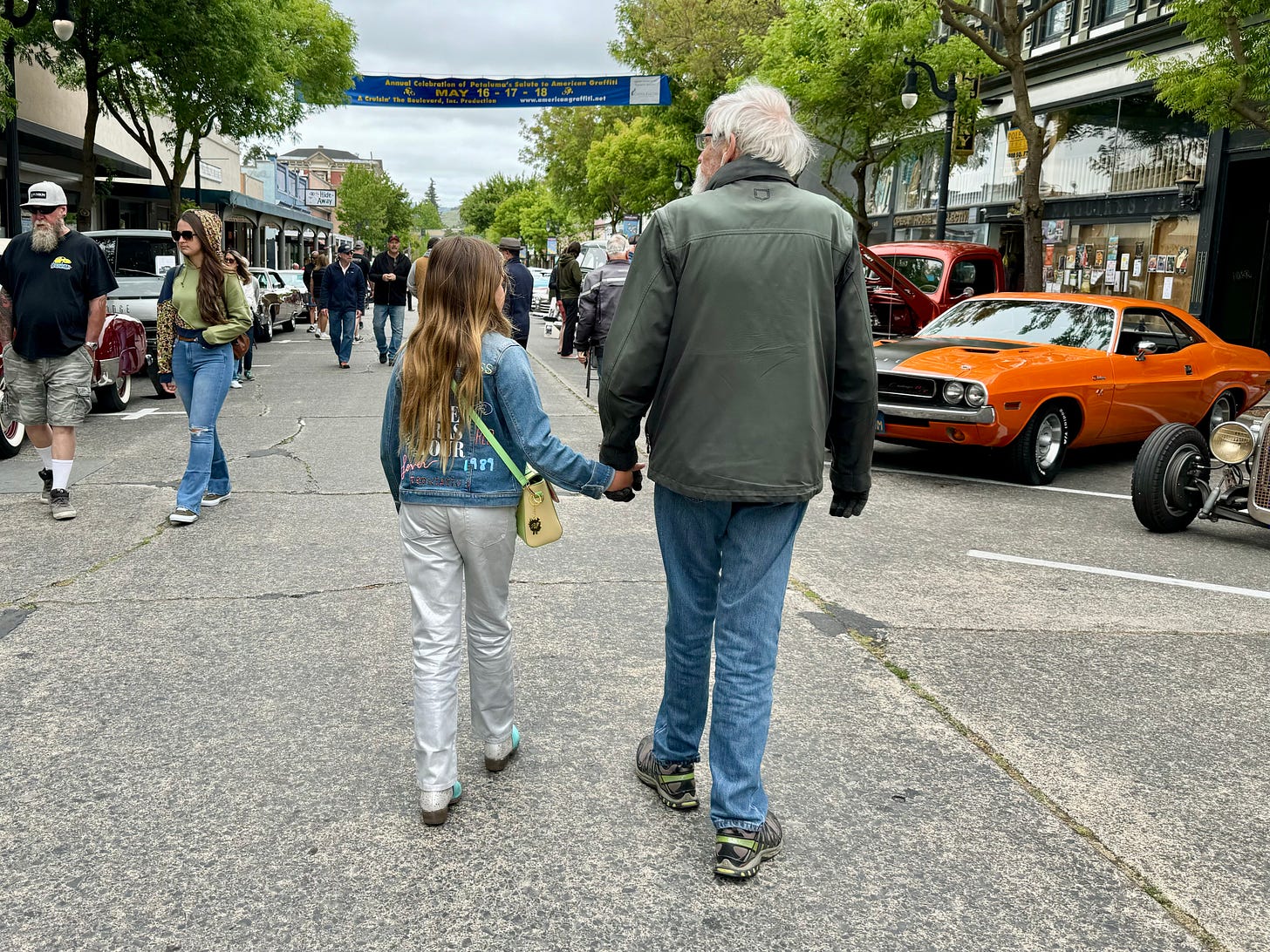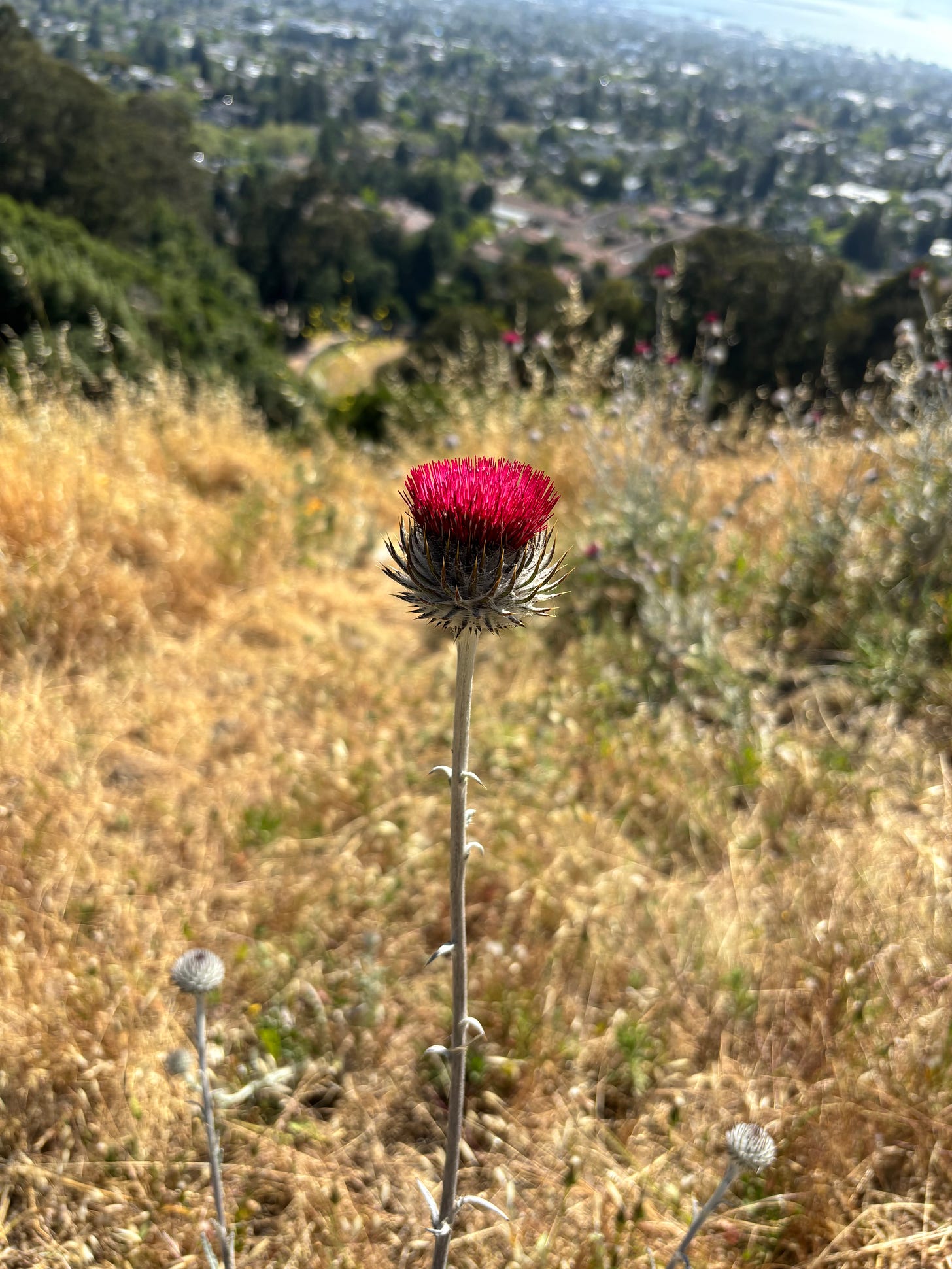Pity is a White woman you don’t know that well making a b-line for you at the grocery store to tell you how very sad she was to hear about the truly terrible thing that happened to you. The gossip she has been a part of surrounding your own misfortune spools out in your mind. You can see, on her perfectly moisturized face, just how chuffed she is with herself for having done the uncomfortable thing of speaking to you, rather than avoiding you. She is feeling like a really good person.
You are feeling like a tool of her identity reinforcement, reduced to the worst circumstance of your life, and importantly, this reduction offers no acknowledgment that the worst thing also has a texture all its own. That it is also sacred and humbling and has given you access to parts of yourself and humanity that you would have never had were it not for this worst thing. Not in a “making lemonade” kind of way. In a whiskey at midnight kind of way—the exhale where you take stock of the sharp left turn your life took and grieve and try to make meaning of it and think of all the people who have been through what you’re going through and hope that tomorrow is easier.
Pity. It’s such a complicated emotion. I’ve been reading articles where psychologists argue that it is an emotion worthy of reputation rehabilitation—a moral signal that helps people step into someone else’s so-called shoes and have more compassion for the troubles of the world even if their own lives are relatively untroubled.
But I’ve got a big problem with pity that makes this argument hard to swallow. It may be a cousin to compassion, but it feels like a cousin that thinks she is better than everyone else. Pity is only possible, it seems to me, when you see yourself as apart from the worst thing that happened to someone else, even when this is technically impossible, which it is, because we will all age, lose people we love, get diseases and disabilities at some point. Bad things come for all of us, just as beautiful things do. Quite often, they are the same thing.
Pity stands on a higher plane and looks down at you as you struggle with some earthly terror—a dad in prison, a kid with a disability, a disease diagnosis that means a whole different future than the one you’d planned for. Pity says, I’m so sorry. It is so unfair, terrible, unfortunate, hard. And what you feel her saying is, I totally understand what you’re going through because I’m magnanimous enough to care about victims. What a shame. One I will never personally know.
My dad’s dementia has taken a challenging turn lately—leading him to struggle with agitation and sundowning (a twee name for a truly horrible experience) off and on. It’s been hard on my family. It’s been hard on me.
I’ve noticed that in the midst of this crisis we’ve been weathering, there have been some people who have shown up for me and made me feel truly accompanied. They ask questions that feel like they are meant for true understanding and tools of insight in order to better offer support. They bring nourishing meals without fanfare or the expectation of thank you notes. They find quirky and boring ways to make my load lighter—research, repairs, childcare. They never make me feel like they are apart from me, even if they’ve never been through this particular sacred terror. They encounter me with an air of tender normalcy, not making my shitty hand into the headline of my whole existence, but not ignoring it either. They seem to be saying, with their gentle witness, I see that you’re in a season of a certain kind of hell. I don’t know what it’s like. But I know you. And I love you. And I’m here for all the parts.
There have been others who have made me feel unwitnessed, which I will admit feels pretty bad, making me question how close we really are; I usually come around to understanding that we are all ridiculously busy and a lot of people just don’t know how to show up. As therapist Prentis Hemphill writes, “My work is not to imagine that I can bear the weight that someone else holds but a commitment to not look away.” Maybe these people are confused about the assignment—not to bare the weight, but to not look away.
Worse than being unwitnessed, however, are those that make me feel freakishly seen. This kind of attention is invasive, extractive, a tool of separation and ego-enforcement for the one offering it.
The sobering part is that I know I have been all of these people—the gentle witness, yes, but also the absent and hesitant, and painful to admit, the agent of pity, too. I’ve been thinking about how whiteness and class and disability are tied up in pity. Just as white supremacy is a tool of separation, so it pity. Just as abelism is a tool of separation, so is pity. Just as wealth inequality is a tool of separation, so is pity. I am trying to get really honest with myself about when I have acted out of solidarity and when I have acted out of pity, causing the kind of harm that hangs in the air like a noxious gas, landing on the “victim,” as I move on with my do-gooder day.
It’s a paradox—a violent subtlety, a cruel nicety, disdain masking as empathy. Many of the moments I now wonder about, moments when I may have had an emotional impact far afield of my intention (at least consciously), are rooted in some demographic or structural difference. Separation was already in the air and I reinforced it with my gaze, my language, my conceptualization of pain.
I realize now that it is easier to avoid pity when you have lived some life—been fucked up by something you never saw coming, watched your beloveds suffer, slammed into the universal reality that some things cannot be fixed and must, instead, be endured. I hope that one of the blessings of my dad’s terrible disease is that it helps me move ever more naturally out of and toward solidarity instead of pity. I hope I catch myself even subconsciously separating myself from hardship that scares me or seems unimaginable and, instead, move towards it—loamy and humble and outside the terms of my own ego. Offer a meal, an errand, a dark, quiet room, an afternoon of delight for someone neglected in the person’s life because they’ve been swallowed whole by caretaking. Send a quick check in. Drop a card or some flowers. Remind myself of all that I can’t possibly know about the texture of someone’s else’s experience and what a gift it is to get a little insight born out of trust and patience.
We hunger for this insight because it reminds us about the gravity of being human, of loving and losing, and living in these bodies that are impermanent and mostly miraculous, but also very much destined to break in various devastating ways. We hunger for this insight because it’s real in the midst of so much distraction and addiction and bullshit. We want the intimacy born of human crisis, but we have to learn how to move towards it with the reverence and tenderness and solidarity that it demands of us.






I am not sure why, but this article called to mind a particular way of distancing oneself from tragedy. Asking questions until you figure out how it wouldn't happen to you. I have had this happen to me after a bad patient outcome at work. I definitely did it when I found put about someone who had a bad pregnancy outcome while I was pregnant. It's so natural to want assurance the bad thing won't happen to you, but it doesn't exist and those questions are some of the biggest connection busters.
“it is easier to avoid pity when you have lived some life” - once again you have looked into my soul. One of the positive things to come out of my kids’ mental health struggles is the release of believing we’d done everything “right” or we were going to avoid any problems. For years, I could pity others bec I thought I had it all figured out. While that does feel good in some respects, it’s also full of fear - fear that things won’t go right. When everything went to hell it was almost a relief. I could let go of the pretense. I have less judgment about others and less fear about my own life looking a certain way.